The Pomp and glory of the Empire had had after the First world war. On the search for a new music composer went their separate ways. Not all of the step, fell into the Modern light.
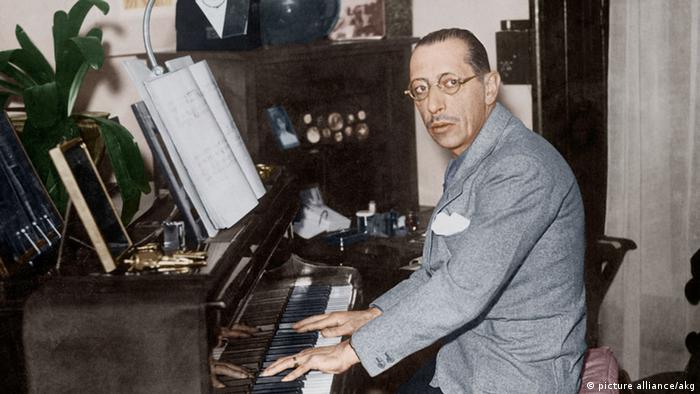
Igor Stravinsky wavered between the traditional and the Modern, his music was unmistakably
As the Russian composer Igor Stravinsky (article image) in 1918 and premiered his “the soldier’s tale” in Lausanne, put the world in the final throes of a war of hitherto unprecedented extent. 40 States were involved, which had a total of 70 million people in the fight. About 17 million people, lost in the First world war, her life.
Music with economical means
Opulent works you could perform in this time. There are good musicians and the money were missing. The large Theater and Opera houses were closed. So Stravinsky, who had gone as a young man to Paris, and then for some years in Switzerland, lived, his story of a soldier, the devil steals the soul, with simple means for a small wall of orchestra composed.
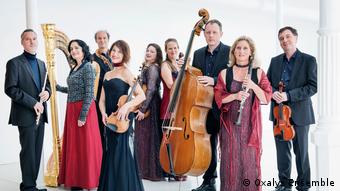
Classic sounds from Belgium: the Oxalys Ensemble
The instrumentation with brass and strings is the perfect fit for the eight members of the Oxalys Ensemble from Belgium, has listed the soldier’s tale at the Beethoven festival in Bonn. The members choose for their concerts, pieces of music, the time historically in relationship to each other. “We see music in a historical context and also in relationship to the other arts,” explains the violinist Shirly Laub of Oxalys. “We have to make, for example, French music, German music, and try to the influences of impressionism and expressionism to find out.”
As the war robs the human soul
In his wall piece of theatre in a small ensemble with Princess, devil, and the soldiers were Igor Stravinsky, Russian fairy-tales as a template: A soldier traded in to the devil his violin for a book that promises him wealth. Three years, he remains ignorant in the service of the devil. When he wants to return to the home, there is for him no home. His fiancée has already married another. While the soldier can get back with a List of his violin, and his happiness in love with a Princess, but in the old home, where the devil is waiting for him, he may not return. As he is in breach of this requirement, will lose his soul.
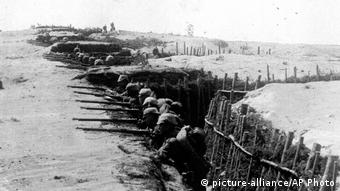
The soldiers fought fierce battles on the West – and, as here, on the Eastern front
“We know that the people after the war really were lost. Europe had changed a lot,” says Shirly Laub. “During the war, many composers were alone and got nothing to do with the Zeitgeist.” Some had emigrated to London, others lived for years in seclusion on the land in their own world. Or they were – from the Patriotism inspired – even on the Front.
The violin as the soul of the soldier, the devil, as a personalized war: is interpreted As “the soldier’s tale” in many ways. The baritone Dietrich Henschel, the works often with Oxalys as a speaker outstanding in the different roles is hatched, still a different interpretation: “There is in Stravinsky’s soldiers, Ragtime and dances, the ways forward”. The suggest that you should not remain in the Tradition to be arrested, says Henschel. Stravinsky himself wrote: “It is a continuation of a Tradition, to make something New.”
Music in the war, influenced by the nationalism
The New were its broken rhythms and harmonies. He also had music from the American continent, such as Jazz and Tango in his piece.
Other, more nationalist-minded French colleague, just at this time, the use of classical music forms. Like Maurice Ravel in his Suite, “Le tombeau de Couperin”. Ravel wrote this funeral music for his in the war of fallen friends and quoting Baroque dances. To a student, he wrote that he waivers on the Marseillaise, but no Tango’m going to quote. The Pope had set this from the point of view of the Church is most offensive dance already before the war, to the Index.
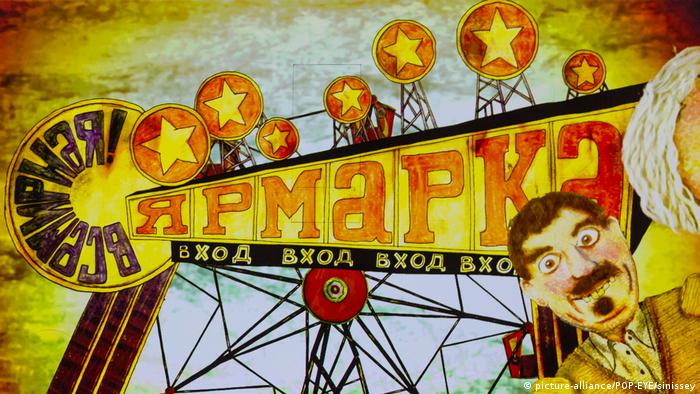
Poster “Petrushka”, one of the world-famous ballet works by Igor Stravinsky from the pre-war period
Also, Ravel’s countryman, the Patriot, Claude Debussy, in his Suite “En blanc et noir” for two pianos by 1915 to Baroque music. The Hungarian Pianist Dénes Várjon, the piece will be with his wife Izabella Simon on the occasion of Debussy’s 100. Year of death on 16.9. at the Bonn Beethoven festival. “The second sentence is a real war piece,” says Várjon. “There are a lot of musical quotes, among other things, of Luther’s chorale ‘Ein Feste Burg’.” The strong castle as a Symbol for the German enemies. Then later, echoes of the Marseillaise for the hoped-for victory in France. Debussy died before the end of the First world war. The times in which they tried to overcome the nationalism, the more he has experienced.
New sounds for a young Generation
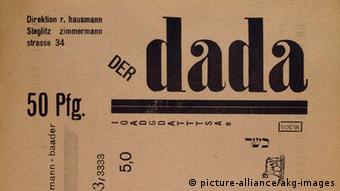
Title page of the magazine “dada” from 1919
For the younger Generation of romantic tone painting touches of the sounds of the pre-war no more fit time to the horrors of war. Satire, caricature and Exaggeration into the Grotesque were a popular style of the time. The 18-year-old Francis Poulenc was in his “Rapsodie Negre” about the rampant Africa fashion of the upper layers of funny.
The piece is based on a nonsense-Text of an imaginary African poet. “The whole work has a surreal component, and is thus a grotesque caricature,” says Dietrich Henschel, who sang at the concert, the baritone voice. “The Text is fully abstract and Dadaist.” Already in 1916, the writer Hugo Ball was called, with its meaningless sound poems, the artistic movement “Dada” – as a Protest against the First world war, and as a provocation against the authority of hearing citizens and artistry.
Music in the economic boom of the 20s
When the First world war was over, saw the economy through the ongoing process of industrialization yells a Boom. Passenger airplanes shortened the distances between countries, Jazz came from the USA to Europe. Artists promoted abstract art, musicians had experimented with atonal music. On the other hand, the psycho-analysis investigated the subconscious and many of the artists deal with meta-physics. It was a fast-paced time. A time in which it was believed the nationalism of the First world war to overcome. Open to the world and modern man wanted to be in music.
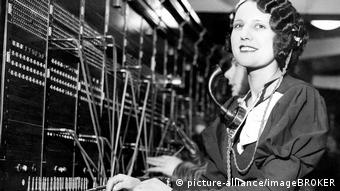
Faster means of communication in the twenties: a Call via the operator
“The musicians began to listen with a Hunger to what others had composed at the same time,” says violinist Shirly Laub by the Ensemble Oxalys. “There were evenings with Stravinsky, Ravel, and all the others to see what was the music of the time.” Such as Gustav Mahler wanted his music learned friends, what wrote to Schoenberg and Busoni. Igor Stravinsky-supported Francis Poulenc and recommended to the young gentlemen to his publisher.
Music is politically
“In the social Situation in front of and around the First world war, around the function of music changed,” explains Dietrich Henschel. “We saw music and drama more and more as a social and political Statement.” Kurt Weill wrote in 1928, Bertolt Brecht, the Threepenny Opera, “the beggar’s”Opera with popular melodies, by 1933, one of the most successful musical theatre productions in Germany.
As popular Ernst Krenek’s Opera “Jonny was”, which was a year earlier, in 1927, premiered, however, been disrupted by supporters of the national socialists. The Jazz-Opera of “new time” became a worldwide success.
However, the recovery was only of short duration. The world economic crisis at the end of the 20 years he played in the Nazis hands. They promised to work, and wanted to restore the “order” again. Many artists and musicians went before the Second world war, into exile in the USA, including Ernst Krenek, and Kurt Weill. Their music were banned by the national socialists. Francis Poulenc set to music in France secretly texts of the French Resistance against the Nazis. Stravinsky remained for a time in France. In 1940, he emigrated to the United States.